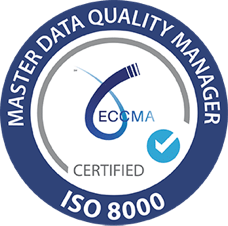
A decade ago, businesses were asking themselves whether they had enough data to make the right decisions. As they sought to unpack market trends, customer sentiment, and spending priorities, decision makers searched for the data to support their choices and often came up short.
Not anymore.
Today its far more common for a business to have so much data that the real struggle is to uncover the insights that this data hides. The digital transformations that have powered real change across all industries have enabled companies to gather, store, and mine data from hundreds of sources across their organisations. Yet owning this data is a very different thing to being able to extract value or identify value indicators from that data. To achieve that, it takes more than just standard data science software, it requires a step up to a next generation tool such as DEMS by Global Data Excellence.
Four Ways Your Data is Letting You Down
You need your data to keep up with your business, but too often you are let down. Here are four of the most common reasons that your data isn’t working for you the way you need it to be.
1. Bad and Duplicated Data
The cost of storing data may have plummeted but the costs involved with data duplication have not. Writing in the Harvard Business Review, Thomas Redman explained that according to IBM the cost of bad data practices to the US economy alone was over $3 trillion. It’s not the storage of this duplicate data that costs companies dearly, it’s the time that data masters, data scientists, and knowledge workers spend hunting for data, finding and correcting errors, cleaning and organising them, and searching for confirmatory sources for data they don’t trust.
2. Multiple Data Infrastructures
As companies grow and data-based decisions become commonplace across the organisation, different departments and divisions often begin to manage their data in their own idiosyncratic ways. Mergers and acquisitions, too, see different data infrastructure integrated into a single corporate whole, and connecting these different infrastructures can be difficult, time consuming, and costly, too. As a result, an organisation’s databases are often disconnected from each other and the capacity to extract transversal value from the data is incredibly limited.
3. Siloed Data
Just as much of a problem as data infrastructure that isn’t connected is data that remains well and truly siloed for other reasons. Global companies with subsidiaries in dozens of countries often find themselves with data that is siloed on departmental, national, regional, or other grounds. It’s not so much that the different silos cannot be connected but that there is a lack of knowledge across the organisation of what data actually exists. Locked into silos, the data is useful in only a limited, local manner.
4. Data that Can’t Keep Up
It might be cliché to say that the world is changing rapidly but it is no less true. Whether the challenges of a global pandemic, shifting consumer sentiment, environmental concerns, or cultural touchpoints shifting supply and demand seemingly on unpredictable whims, contexts and markets are shifting constantly. Data needs to keep up with these shifts to inform the decisions that will be made and, oftentimes, it cannot. Whether it’s an incapacity to gather the right data or, more likely, to be able to connect the existing data to the changing market, data that cannot keep up with shifting markets is a liability for any organisation.
Yet, as widespread as these issues are for organisations across the industrial landscape, there are solutions that can help get data working for decision makers – and fast.
The DEMS Difference
Different databases, heterogenous infrastructure, and siloed information – what’s the solution?
In a word: DEMS.
DEMS is a technology solution for organisations that want to be data driven and make data-informed decisions, but that still suffer from data practices that are holding them back.
DEMS is truly plug-and-play for data infrastructure. Where other solutions require long integration efforts and customised work to connect disparate databases together, DEMS is capable to connecting to any database and ingesting the data contained within without any additional complicated or costly integration efforts. In practice, it is just as simple as connecting plug-and-play hardware to a network: with standard protocols respected and best practices embedded in the software, DEMS connects to and ingests all data sources no matter the database, infrastructure, or business silo.
If this plug-and-play capacity is a boon for organisations with disparate data sources, it’s even more valuable for companies that wish to draw on new data after a merger or an acquisition. Instead of making a costly attempt to adapt an existing data management system to a new and expanded data pool, DEMS simply connects, ingests, and integrates all the merged or acquired data sources without any additional integration efforts.
The speed at which DEMS can connect and ingest to data sources means that the time to a return on investment is slashed. Typically, the time to value is measured in weeks, not months or years. With fewer resources deployed to connect databases and less energy expended on integration efforts, decision makers can reap the benefits of their investments in DEMS rapidly, with seven-figure improvements achieved quickly for clients in a variety of industries.
DEMS also holds some real advantages for global businesses that draw on databases and data sources in a variety of languages and cultural contexts. With the native capacity to ingest data in any language, process rules in any language, and provide insights in any language, DEMS is a digital solution that, is built for a diverse and global business environment.
Does Your Data Work for You?
In today’s world the challenge is not having data or having enough data but getting the right data. Much of the time organisations have the data they need to make the right decisions, but it remains disconnected and of little help in making the sorts of choices that organisations need to make to succeed in a competitive market.
When data is duplicated, when it is trapped in silos, when there are multiple disconnected data infrastructures, and where data is not instantly available as circumstances change, organisations are at a disadvantage. What they need is for their data to work for them, to keep up with the speed of their business, and to generate the value and insights that they need to navigate uncertain international markets.
In DEMS, however, there exists a plug-and-play solution that overcomes all of these challenges to data-based decision making, and more. With the inbuilt capability to connect to any database and any data source, integration is rapid and the time to value is measured in weeks, and not months. For international organisations, DEMS’s native capacity to ingest data in any language is a major plus, as is the capacity to instantly ingest data from a merger or an acquisition without skipping a beat.
Making your data work for you is a challenge for every business. While there are a number of challenges that competing solutions might overcome with extended integration efforts and costly consulting projects, the DEMS solution from Global Data Excellence is ready out-of-the-box to connect to data, ingest that data, and begin generating the insights that will deliver a return on that investment rapidly.
Global Data Excellence News
Dr. Walid el Abed at S3C 2025: Data Sovereignty, Ethical AI, and Digital Governance
We are pleased to share the presentation by Dr. Walid el Abed, Founder and CEO of Global Data Excellence, at the S3C 2025 Summit – a major event...
Global Data Excellence and The Higher Committee of Human Fraternity Unite to Drive Ethical AI and Human-Centered Technology for Global Good
For immediate release Geneva, Switzerland – May 23, 2025 – Global Data Excellence (GDE) and The Higher Committee of Human Fraternity have entered...
GLOBAL DATA EXCELLENCE CELEBRATES DATA INDEPENDENCE DAY WITH THE LAUNCH OF DEMS FOR ALL
Press Release: For Immediate Release Geneva, Switzerland – September 18, 2024 – In a historic announcement, following Dr. Walid el Abed's...

Global Data Excellence (GDE)
Route de la Galaise 34
CH - 1228 Plan-les-Ouates


© 2024 Global Data Excellence | All Rights reserved | DEMS Support Platform | Website realised by Swiss House of Brands




Recent Comments